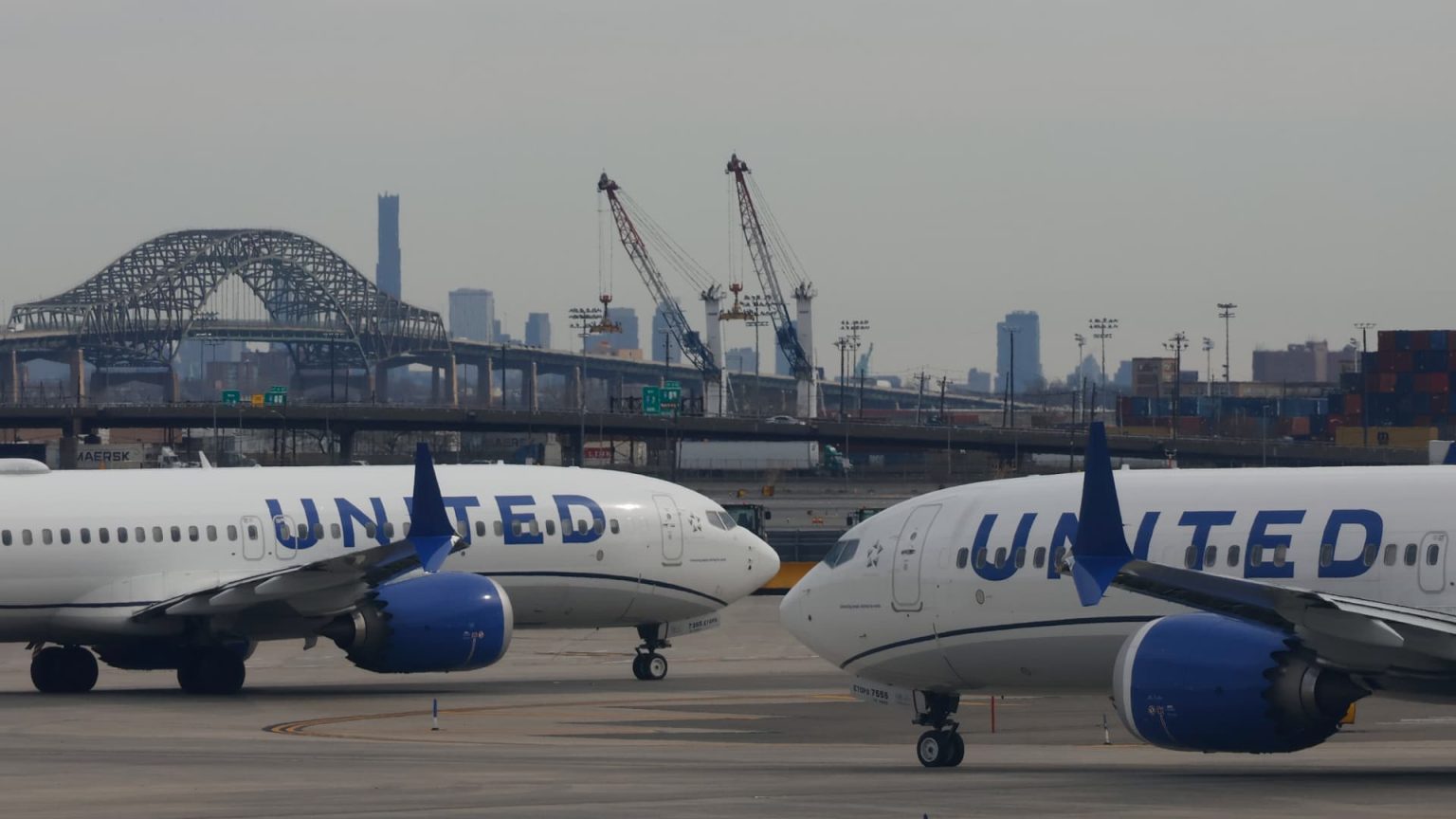United Airlines has announced that it will cut 35 flights daily from its Newark Liberty International Airport schedule due to extensive delays affecting thousands of passengers. These disruptions, attributed to a shortage of air traffic controllers and technical issues within the Federal Aviation Administration (FAA), are a significant blow to the airline’s operational capacity. With more than 300 flights delayed as of Friday, these measures aim to ensure better service for customers amid ongoing aviation challenges.
| Article Subheadings |
|---|
| 1) Disruptions Leading to Flight Cancellations |
| 2) The Impact of Air Traffic Control Issues |
| 3) United Airlines’ Response to the Crisis |
| 4) Government and Regulatory Reactions |
| 5) Future Implications for Air Travel |
Disruptions Leading to Flight Cancellations
The flight cancellations and delays at Newark Liberty International Airport have come as a result of ongoing complications faced by United Airlines. CEO Scott Kirby announced that 35 flights would be scrapped daily beginning this weekend. The airline decided to take this action after witnessing over 300 flight delays on a single day, along with a staggering total of more than 1,400 delays and cancellations earlier in the week according to flight-tracking platforms like FlightAware. This situation highlights a worsening trend in air travel logistics at one of the busiest airports in the United States.
The Impact of Air Traffic Control Issues
The disruptions are rooted in severe staffing shortages within the air traffic control workforce. According to Kirby, 20% of air traffic controllers assigned to Newark have “walked off the job” recently due to handling multiple technical failures and the fatigue from chronic understaffing. These complications have combined to create a situation where Newark Airport simply cannot accommodate the number of flights scheduled. The FAA has confirmed that without a resolution to these staffing problems, the situation at Newark is likely to worsen in the coming weeks and months.
United Airlines’ Response to the Crisis
In light of these overwhelming challenges, United Airlines has taken steps to protect its customers. In an effort to maintain customer satisfaction, the airline announced it would waive change fees or fare differences for those impacted by the delays and cancellations. Kirby, in his communication to customers, expressed disappointment over the necessity to further reduce flight schedules, but emphasized that it was a necessary measure to ensure service stability given the current conditions. He urged that more stringent capacity control measures be instituted at Newark to manage operations better during these tumultuous times.
Government and Regulatory Reactions
Although the airline has been proactive in addressing the issue, the government and regulatory bodies have yet to make significant moves to alleviate the situation. The FAA, Transportation Department, and the air traffic controllers’ union did not provide immediate comments upon request regarding the ongoing disruptions. Nonetheless, the Transportation Department introduced a series of new incentives aimed at alleviating the long-standing staffing shortages, an issue that has persisted in the aviation sector for years, exacerbated further by the Covid-19 pandemic and subsequent training delays.
Future Implications for Air Travel
The measures taken by United Airlines indicate a trend that could redefine air travel in the weeks to come. If staffing problems at the FAA and technology issues continue unabated, passengers can expect further delays and potential cancellations. Kirby’s concerns highlight the systemic issues within the aviation industry that require immediate redress. Congress’s acknowledgment of these charges and potential remedies may be vital for restoring normalcy at New Jersey’s Newark Liberty Airport and other busy hubs across the country.
| No. | Key Points |
|---|---|
| 1 | United Airlines will cancel 35 daily flights at Newark Airport due to delays. |
| 2 | Air traffic controller shortages and FAA tech problems are major contributors to the disruptions. |
| 3 | Passengers affected will have waived change fees and fare differences. |
| 4 | Government agencies are urged to take immediate action to alleviate staffing shortages. |
| 5 | United Airlines’ measures reflect ongoing systemic issues in the aviation industry. |
Summary
The recent flight cancellations at Newark Liberty International Airport signify significant challenges in the air travel sector, exacerbated by staffing shortages and technology failures within the FAA. As United Airlines attempts to navigate this crisis while safeguarding its customers, the need for immediate governmental and regulatory action has become increasingly evident. The future of air travel at Newark and beyond hinges on addressing these systemic challenges effectively.
Frequently Asked Questions
Question: What caused United Airlines to cancel flights at Newark Airport?
The cancellations were mainly due to staffing shortages of air traffic controllers and technical problems within the FAA, leading to significant delays.
Question: How many flights will United Airlines be canceling daily?
United Airlines announced it will cancel 35 flights per day from Newark Liberty International Airport.
Question: What measures are being taken to support passengers affected by the cancellations?
United Airlines is waiving change fees and fare differences for customers whose flights are impacted by the disruptions.


